Darby Lloyd Rains may be the ultimate Rialto Report golden age actress. She was part of the initial group of ‘porn pioneers’ in New York, together with Marc Stevens, Tina Russell, Georgina Spelvin, Jamie Gillis et al, starting in the early days of cheap 8mm loops before graduating to low-rent one day wonders and then starring in some of the biggest and best-known films of the 1970s. She was a talented actor – and singer – who could have enjoyed a mainstream career if she’d had the breaks.
She was adept at playing the full range of blue personas: young girl, older woman, housewife, mistress, mother, or madame, and her comedic ability and sexually frustrated flirtatiousness steal the show time and again in films by the likes of Radley Metzger, Joe Sarno, the Amero brothers, and Gerard Damiano. Take her lead role in Naked Came The Stranger (1975) for example: she sizzles with sex while being funny too – whether engaging in a slap-stick attempt to seduce an inexperienced partner with an array of S&M equipment, or her mimed shock when she catches her husband in flagrante with his secretary.
After years of searching, The Rialto Report tracked Darby down a few years ago – living a very different life far from her days as a New York sex film queen. At first her memories were vague, for the simple reason that she hadn’t thought back to her life in New York since she left the city in the late 1970s. The reason for the departure was traumatic, and is still something that haunts her to this day. After several conversations, memories started to return, and together we pieced together Darby’s story.
This is the first part of Darby Lloyd Rains tale.
———————————————————————————————————————————————-
Darby is an unusual name.
That’s the name I still have to this day, though I was born Barbara.
There is some confusion as to your birth date.
I was born in 1947, not 1948 as it says some places on the internet.
Where did you spend your upbringing?
I was brought up in Yorktown Heights, a small town in Westchester County, north of New York City.
Was it a happy childhood?
Pretty happy. I loved being creative and my parents encouraged that, so it didn’t take much to keep me happy.
What did your folks do?
My father was from the Pacific North West, and he came from a musical family. His father was a violinist, and his mother was a church soloist who also played piano accompaniment in movie theaters.
My father trained as a teacher at the University of Washington, but he came to New York the year I was born, and became a pretty successful musical theater actor. He was like an old school song and dance man. He wasn’t a big star, but had many roles in successful Broadway productions in the 1950s, like ‘Brigadoon’ and ‘Pajama Game.’
Then he formed a male quartet called the Revelers, and they toured all over the country. He was always on stage, TV, or the radio.
In the late 1950s, he gave that up and became a local high school music teacher in our town, and spent his time mentoring kids and staging musical productions.
Did the musical interest rub off onto you too?
Oh yes. I played the guitar and piano, and loved singing. In fact, my family formed a group singing madrigals – and we did a lot of concerts together.
How about your mom?
She was very active in organizing the girl scouts’ groups in upstate New York. That was a full-time role for her, and she was well-known for arranging all the summer camps for girls.
Were your parents strict?
My father was strict in a distant way, but it wasn’t repressive. I went to the city by myself a lot when I was young.
How close were you with them?
I was always close to my mother. We spoke all the time. But with my father, it was very different. From when I became a teenager onwards, I stopped having much of a relationship with him. We barely spoke for a while when I was making films.
Did you have siblings?
I had an older brother and an older sister. I was an afterthought. I was left to myself.
What were your dreams and ambitions?
I dreamed of show business! At school, I was in all the plays and musicals, and I dreamed of following in my father’s footsteps.
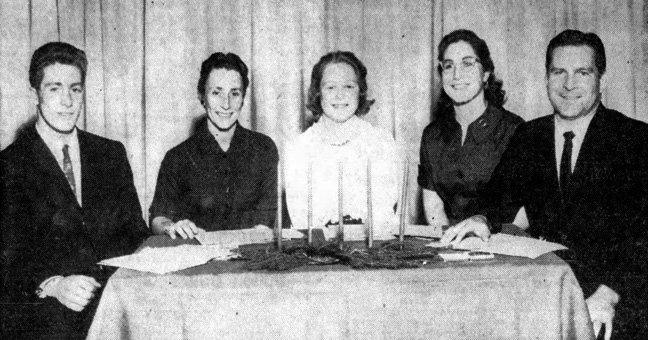 Darby (center) and family (1962)
Darby (center) and family (1962)
What were you like as a teenager?
Normal… happy-go-lucky, always curious, creative. I had a lot of friends.
But I was always very independent. I chose when I wanted to lose my virginity – which was when I was 15. The guy was much older, almost 30. But I’d read and heard so much about sex, and so it was just something I wanted to get out of the way. The guy was a guitarist, of course. I was always was attracted to musicians.
What did you want to do when you left school?
I wanted to do something in the performing arts, but my mother was dead against it, so I went to University of Puget Sound in Tacoma, WA – which is a private school. That was the part of the country where my father had come from, so we had lots of connections there.
I only lasted a year, and then headed back home to Yorktown.
Why was that?
I missed home, and I wanted to be a singer. I’d done a lot of singing by then, and I just wanted to start performing.
What type of music were you singing?
My dream was to be a nightclub singer, draped over a piano, singing sultry ballads, but I was also drawn to folk music. That was more fashionable: it was the hippy era, so Carole King, Joni Mitchell, and all that sort of thing was popular.
So presumably you headed off to Greenwich Village in New York City?
Of course! The folk scene there was still vibrant after Dylan and all of the rest of the folkies had made the area their own. And there were many bars and clubs where I could sing.
That was how I met Joe…
Joe Negroni… who’d been part of the doo-wop group, Frankie Lymon and The Teenagers, right?
Yes, Joe was the actually the founder of that group when he was just 13 or 14. He put the group together. They had a huge hit in the 1950s with the song ‘Why Do Fools Fall In Love?’
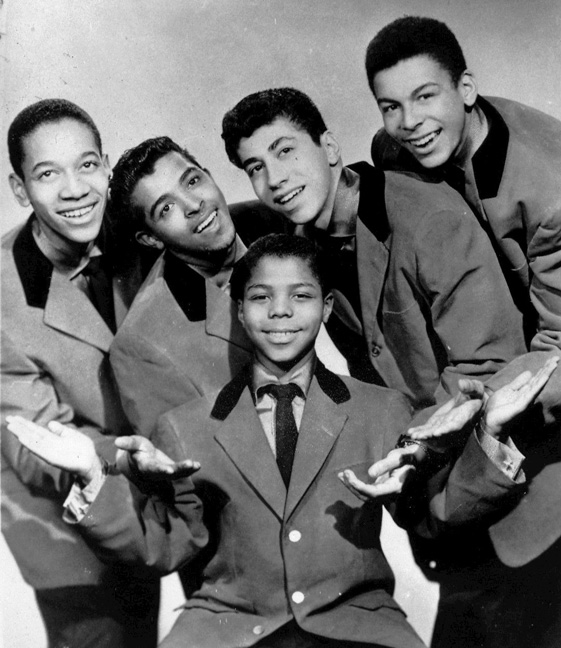 Frankie Lymon and the Teenagers (1958) – with Joe Negroni (center right)
Frankie Lymon and the Teenagers (1958) – with Joe Negroni (center right)
How did you meet him?
It was one New Year’s Eve and I was at a party with my girlfriend. We were chatting in a hallway, and we started to sing and play guitar… and Joe came down the stairs. Our eyes locked, and… Joe and I fell in love. That was in the late 1960s.
Were The Teenagers still together when you met Joe?
Not really. Frankie had left the group and went solo in 1957 – and then he moved to the west coast. He died in 1968.
The Teenagers continued without him but never had the same success.
Frankie Lymon died of a heroin overdose…
They all took drugs. That was their world, that was where they came from. It didn’t matter that they found brief fame and fortune. They were still vulnerable young men who had their demons. Frankie died a junkie, but they all struggled in their own way.
And you became close to Joe?
Joe was the love of my life. He was a beautiful, talented Puerto Rican from the Bronx.
He was getting out of the music industry when I met him and he was trying to get an acting career started. He got small parts in New York films like ‘Godfather 2’ (1974), ‘The Taking of Pelham 1, 2, 3’ (1974), and ‘Panic in Needle Park’ (1971). All uncredited roles. He was a good actor, and could’ve made a career doing that, but it never worked out for him.
Tell me about your connection with him.
We had a lot in common: we both had the drive to make it in the city. Even though we came from such different backgrounds, we could both hustle.
Was Joe making money off royalties from his Teenagers career during this time?
Not really. The group were ripped off from the start. They were forced to sign away their rights from the early hits. They were promised that future contracts would be profitable… but those contracts never materialized. Many of the early rock n’ roll stars were treated in the same way. Especially the black performers. It was tragic.
Did you have success as a singer?
I formed a duo called ‘Cranberry’ with that same girlfriend of mine – the same girl I was with when I met Joe. We got a record contract and made a record for Liberty. Joe produced it. Sadly, it never got a real release, so it was a struggle for a time.
How did you make ends meet?
I did the all the usual: some office work, waitressing, working in restaurants. I never made enough money from gigging to support myself.
My main job was working as a receptionist for a doctor on the Upper West Side. That paid pretty well, but I became bored of it after a while.
Then I did some escort work.
What made you decide to do that?
It made sense: I was attractive, I like sex, had something desirable that men wanted, and I needed money!
What kind of escort work?
Mostly straight pay for play. The I started some dominatrix work. I had a wide selection of whips!
Did you enjoy that?
It was fun, but the problem is that I’m not a sadistic person. I never knew how fierce to be (laughs).
Where would you find clients?
Mostly the small ads. Village Voice and so on.
What kind of clients did you get?
Mainly businessmen. Many wanted to be humiliated, so I would create a scenario and we’d act it out. And then I’d whip them (laughs).
Where were you living?
The Lower East Side.
Did you live with Joe?
No, we didn’t live together. He had his own place – he had children. For a time, there were three of us in the relationship – we had another woman – and that worked well.
But Joe and I spent nearly all of our time together – reciting lines to prepare for auditions, going to auditions, doing music, or just hanging out.
How did you get the auditions?
Mainly though the ads in Backstage or Show Business.
Did you have much success?
Not really. Too many of them were just men who wanted to get blown and had no intention of actually offering acting roles.
But then I was cast in ‘The French Connection’ (1971).
What happened there?
I think someone saw my dominatrix ad… who knows… maybe it was one of my clients… and I got invited along to met Billy Friedkin and Phil D’Antoni (the producer).
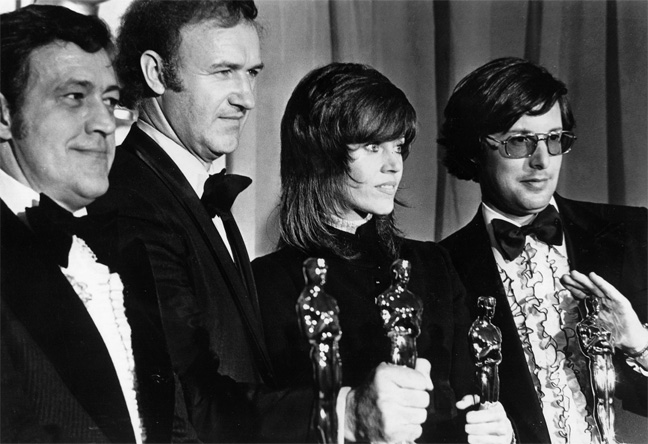 Phil D’Antoni (left) and Wiiliam Friedkin (right) accepting Academy Awards for ‘The French Connection’ (1972)
Phil D’Antoni (left) and Wiiliam Friedkin (right) accepting Academy Awards for ‘The French Connection’ (1972)
What did the audition consist of?
Well, I knew they were interested in my dominatrix experience, so I went along dressed up in my leather mini, thigh-length boots, and red leather jacket, and I bought a new cat o’ nine tails especially for the occasion. I saw other girls there that day, and they were so square!
What did Friedkin and D’Antoni think of you?
They were knocked out! They asked about what I did, and they wanted to know about all my clients. They handed me a dialogue sheet and I read some lines.
How did that go?
Well, I immediately stopped when I saw what they’d written.
What was wrong with it?
The scene was a two header between a dominatrix and her client, who is the French killer in the film. The client’s lines were so fake! He spoke to her by calling her “honey” and “darling”…
Which wasn’t the case with your clients?
No! I told Bill that I called my clients, “You dirty pig” or “Worthless scumbag.” So they told to change whatever I wanted – and they loved what I did, and offered me the role.
What do you remember about the shoot?
We shot it in my apartment. Bill said he wanted it to be as realistic as possible. So I let rip and really used that whip on the character that was the killer.
How did the actor you worked with react?
He was fine – but it quickly became clear that Billy hadn’t told him that it was a S&M scene… He’d just been told that his character was visiting a prostitute. He didn’t know about the whipping… and he was mad with Bill for having kept that a secret…
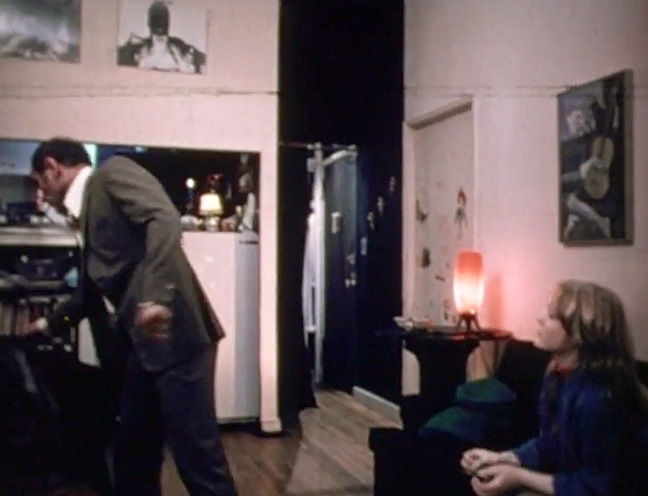 Darby Lloyd Rains, in her first appearance in front of the camera, in her own apartment in ‘The French Connection’ (1971)
Darby Lloyd Rains, in her first appearance in front of the camera, in her own apartment in ‘The French Connection’ (1971)
Do you remember when it was shot?
That was around December 1970, I think. I saw Bill a few times after that as a client.
You mean he came back and paid to be a submissive to you as a dominatrix?
Yes. I think it was something new to him that he wanted to experiment with.
Was that strange for you?
Not really. He was a nice man and we understood each other. I don’t think we even had sex. But we did plenty of other things (laughs).
But your part didn’t end up in the final cut?
No. Bill told me he loved the scene we shot, but when I went to see the movie when it came out in theaters, to my dismay, my part had been completely cut out.
How did you feel about that?
I was mad, of course! It would’ve had a big effect on my acting career.
Did you ever speak to him about it?
I ran into him a couple of years later, and complained to his face. He looked embarrassed and he made some excuses. I told him I was acting in sex films, and he was intrigued. Joe and I were writing a script about my experiences. Billy agreed to read it so I sent it to him, but then ‘The Exorcist’ came out and that was such a smash hit for him, and I never heard from him again.
When did you first consider making an adult film?
I was always a bit of an exhibitionist. I think you have to be in order to be a performer of any kind. And I was always fascinated with sex. So put those two together and it was a no-brainer.
What do you mean “fascinated with sex”?
It was the era. Women had the Pill, and so we were experimenting with our new freedoms. And I read every sex-related book I could find, from de Sade to Henry Miller, DH Lawrence and so on. All these materials, and sex aids, and products were all available to us for the first time in history. I loved it.
How did the first adult film experience come about?
I actually resisted it at first!
I started each day by going through the newspapers and circling all the ads for film and theater auditions. And typically I found that many of them were for sex films. It was always a dirty, old man in a temporary office, who said something like, “I’m going to need you to take off your clothes so I can see if I really want to hire you…”
At first, I was put off, but that went on for months and months. I mean, they must have been making a whole lot of porn films, because it kept happening! Many of them were just short 8mm loops.
Were you ever tempted?
Oh, I did a few loops. That was no big deal. I think my first was for Bob Wolfe down on 14th St. He had an open audition on Monday every week where he took Polaroids of anyone who turned up. He was famous for that. I seem to remember that he asked you to write your personal contact details on the back of the Polaroid. And then he’d call you if he wanted you for a loop.
Bob was an ok guy, and he had a good bedside manner with the actors – which you needed, because some of the guys took forever…
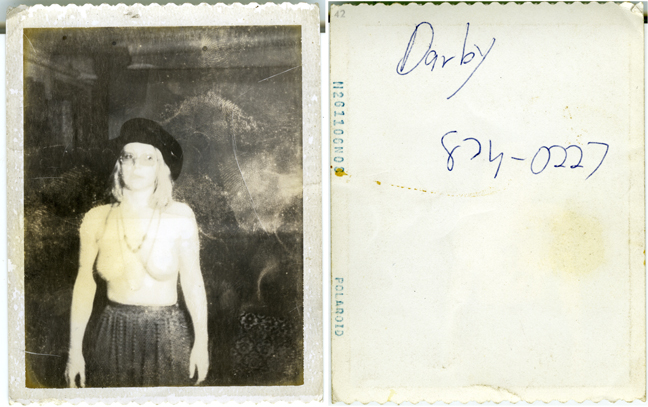 Front and back of Polaroid of Darby Lloyd Rains, taken at Bob Wolfe’s studio (1971)
Front and back of Polaroid of Darby Lloyd Rains, taken at Bob Wolfe’s studio (1971)
But you didn’t stay in loops for long.
Actually, I went back to loops later in my career. At that stage, it was a quick way to earn extra money.
What was your first feature film?
A film for Gerard Damiano called Sex U.S.A (1971).
I think it was one of his first films too. A year or two before Deep Throat (1972). It was a couple of months after ‘The French Connection’ experience.
A feature is rather different from a loop – it is shown in theaters and is thus much more visible. What convinced you to make that leap?
I was on the fence but I liked Gerry from the start. He was strange and kooky, but a kind and caring man, and you could see that he really believed in what he was doing. And the money he was offering meant that I could live off that for a month. I was curious to see what a real film set was like. My only experience had been loops and the French Connection shoot in my apartment.
But you wore a big black wig for the whole production?
Ha ha! That is true! I’m very fair, and as a young girl, I had very blonde hair. But I was still intent on getting parts in big movies – so when Gerry saw my doubts, he persuaded me by saying that no one would recognize me if I wore a wig.
And Gerry was an ex-hairdresser so presumably he had access to hair pieces…
Yes! He made a few calls, and on the first day of the shoot, he offered me a selection. I chose the biggest, blackest one that was furthest away from my real hair!
And here we are… decades later talking about it. So I guess it didn’t work! (laughs)
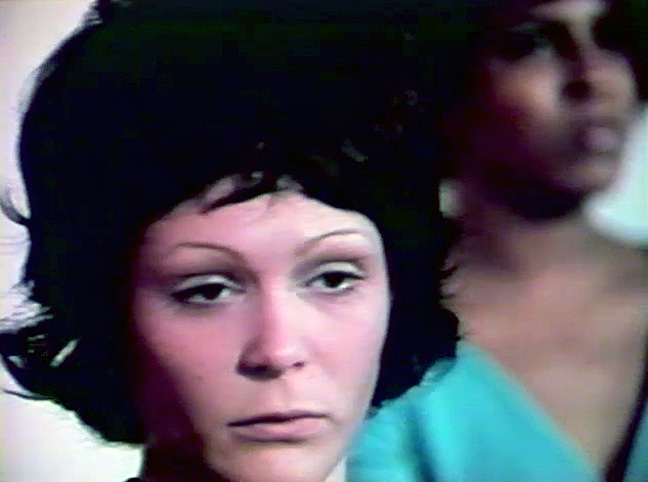 Darby Lloyd Rains, with black wig, in ‘Sex U.S.A.’ (1971)
Darby Lloyd Rains, with black wig, in ‘Sex U.S.A.’ (1971)
What did think of the people you met on the set?
I didn’t realize at the time but the cast consisted of basically the whole community of New York sex film actors: Harry Reems, Fred Lincoln, Tina and Jason Russell, Paul Matthews.
I looked across the room and saw Barbara Grumet: she was a girl that was active in the civil rights movement. I’d known her from marches that we’d done together. It was so strange to see someone I actually knew taking their clothes off… and then having sex! She recognized me and we just fell about laughing.
 Barbara Grumet, in ‘Sex U.S.A’ (1971)
Barbara Grumet, in ‘Sex U.S.A’ (1971)
Did you get to know the performers?
Oh yes. Over the next few years, I became close to all of them – especially Tina and Jason. We spent a lot of time together. It was a real close-knit community. We were all tight for a time, sharing information, helping each other, and spending time in bars and diners swapping stories. I almost moved in with Tina and Jason at their place in Brooklyn Heights when I was between apartments, before I moved to an apartment uptown on West 84th St, near Central Park.
There was a fair amount of press coverage of the X-rated business, and Marc and Tina wrote biographies: did you feel like celebrities in the early days?
Not celebrities, but I did feel like people looked at us with a degree of disbelief. We were doing something for the first time in history, and so naturally people were curious. I remember being stopped in the street a few times, and all my local neighborhood store owners knew what I did – and they loved it.
How did ‘Sex U.S.A.’ turn out?
There were a whole lot of semi-documentary sex films being made – and it was one of those. Gerry appeared in this one: he interviewed people about their sex lives and then he played the interviews on top of the images of us having sex, so it had more intelligence and art than many others.
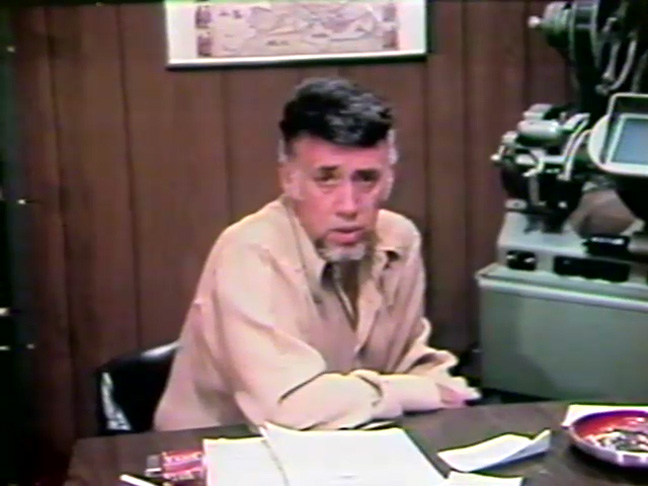 Gerry Damiano, in ‘Sex U.S.A.’ (1971)
Gerry Damiano, in ‘Sex U.S.A.’ (1971)
What did Joe think of you making a sex film?
We had an open relationship, and he continued to see other women on occasion. Maybe there was something deep down that hurt his male pride but it never came between us. He was supportive.
Did he ever think about joining you and making a sex film?
Later on, I got him a part in Naked Came The Stranger (1975) as a gay radio host. He was hysterical in that. Everybody loved him. But he refused to use his real name, even though he had no sex part.
I think that part of him would have been curious to do a sex scene, but maybe he felt he was too much of a public figure still. I don’t know. He did a loop or two if I remember correctly, but only because it was so anonymous.
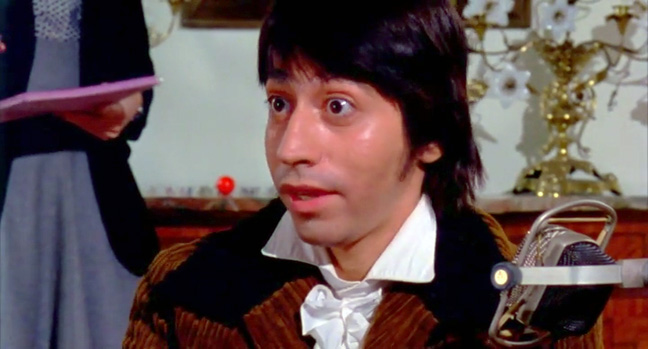 Joe Negroni, in ‘Naked Came The Stranger’ (1975)
Joe Negroni, in ‘Naked Came The Stranger’ (1975)
Was it a conscious decision to make more films after ‘Sex U.S.A.’?
I didn’t know if I was ready to have a career as a sex film actress, but yes, it was fun, and the money was the deciding factor.
Do you remember your next film?
I think the next was Dark Dreams (1971). It had some of the same people as ‘Sex U.S.A.’, like Tina Russell and Harry Reems.
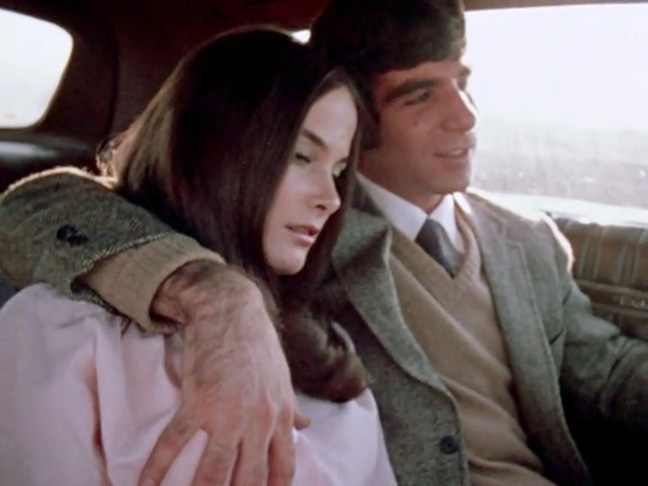 Tina Russell and Harry Reems, in ‘Dark Dreams’ (1971)
Tina Russell and Harry Reems, in ‘Dark Dreams’ (1971)
Do you remember who made that one?
Yes, it was a husband-and-wife team. He was an award-winning director of TV commercials, and she was an artistic director for TV programs, if I recall. They only made the one film, ‘Dark Dreams’, which was a shame as they had more talent than most.
He was called Gene, and told us that horror and sex films were the two more commercial genres, and so he wanted to be the first director to combine them.
Plus it was also only a year or so after the Manson family events, so the occult was fresh in everyone’s heads…
It was shot in a beautiful house in Connecticut.
I went up there for the whole shoot even though I only had a short scene with Tina. The whole situation was wild: I had a fling with Harry, Tina was fucking the cameraman who was a German or Czech guy named Werner, and there was a cute little African American girl who we all suspected was underage. There was a lot going on in that haunted house that week…! (laughs)
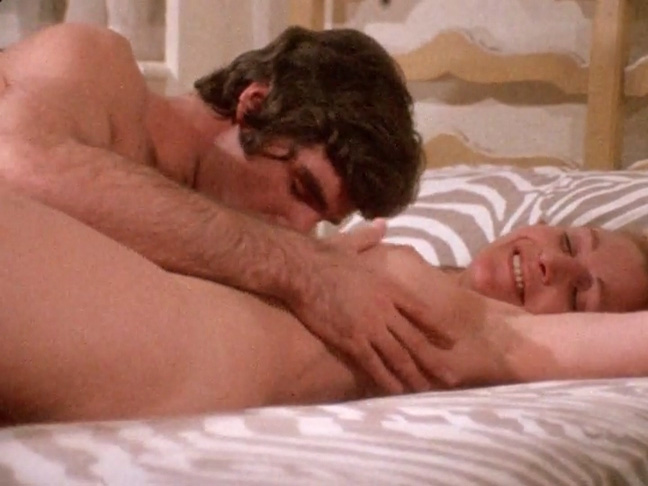 Darby Lloyd Rains, with Harry Reems in ‘Dark Dreams’ (1971)
Darby Lloyd Rains, with Harry Reems in ‘Dark Dreams’ (1971)
Did you run into underage performers much?
Not that I know of. We were already facing big risks from the cops for just making sex films. It wasn’t legal when we started. So the last thing anyone wanted was to invite any additional problems. I do remember one girl named Valerie who I think was 17.
Was that Valerie Merians (aka Valerie Marron)?
Yes. She was a teenage runaway who was acting out a lot of issues. I think she told me she was 17 when she made her first films. She was damaged; it was sad.
How did ‘Dark Dreams’ turn out?
Good. It played in theaters for a while and got a lot of publicity in the newspapers.
I ran into Gene, the director, in a Manhattan restaurant a few years later. He’d got divorced, and was rather shy to be recognized. I got the impression that ‘Dark Dream’ was his dark secret…
Do you remember another early film called The Hooker’s Convention (1973)?
Was that the one shot down in Atlantic City?
Yes.
That was one of the first. Producers were still experimenting with what they could do. I remember it was shot in a mansion that had belonged to a Hollywood superstar. Someone like Rock Hudson or Cary Grant, I think. And this director’s big idea for the movie was to cover me in cold cuts. Sausage, ham, salami. (laughs)
Do you remember the identity of director?
No. He wasn’t a New Yorker I don’t think, because all his contacts seemed to be in New Jersey. I remember that he worked in the film business and had a lot of resources, and a fair bit of cash. He knew what he was doing. I think the movie turned out ok.
Tina and Jason were there again, and this was the set where I first met Marc Stevens. He was a riot. One thing I do remember is that Tina couldn’t find Jason at one stage during the shoot, so we went looking for him. We eventually found him with Marc – and they were fucking each other! Tina was a little hurt, but everyone else found it hilarious…
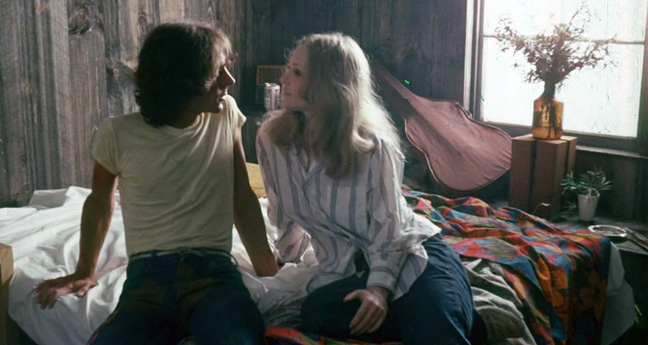 Darby Lloyd Rains, with Marc Stevens
Darby Lloyd Rains, with Marc Stevens
Another early film that you made outside of New York was The Erotic Memoirs of a Male Chauvinist Pig (1973) which was shot down in Philly.
Yes, another interesting one. And another with Tina and Jason. They were in everything! The director, Ray (Horsch), was an interesting guy. He had a murky, mysterious past, and he was a bit of a provocateur, but he had a vision for the film and he made it work.
So far, you worked for directors who were established filmmakers – Gerry Damiano, Gene on ‘Dark Dreams’, the NJ filmmaker, and Ray in Philadelphia. Presumably that changed as new people started to appear in the business?
Oh sure. We had to deal with idiots who were learning on the job. Or people who were just obnoxious.
Such as…?
Well, Roberta Findlay was one. At first I was intrigued to see a woman making a movie. But what a classless woman. No respect for the actors; she seemed to revel in our discomfort. Maybe it was a self-loathing, because she clearly wasn’t comfortable filming people having sex. I made several films for her in the first years. Always unpleasant, but I learned to take the rough with the smooth.
I presume that your experience with Joe Sarno on Sleepy Head (1973) was better?
Oh, he was a sweetheart. And so was his wife. He was like Roberta in that he didn’t seem to enjoy the fact that his job involved filming sex. But unlike Roberta, he treated everyone with respect, and probably spent more time with the actors explaining their motivation than anyone else I worked with.
Joe liked kitchen sink dramas and the erotic tensions that exist between people. He just didn’t want to have to show the sexual results…
I think I just made that one film with Joe. I would have liked to work with him again. It was a fun experience. I remember having a brief fling with Davey Jones, the film’s lead.
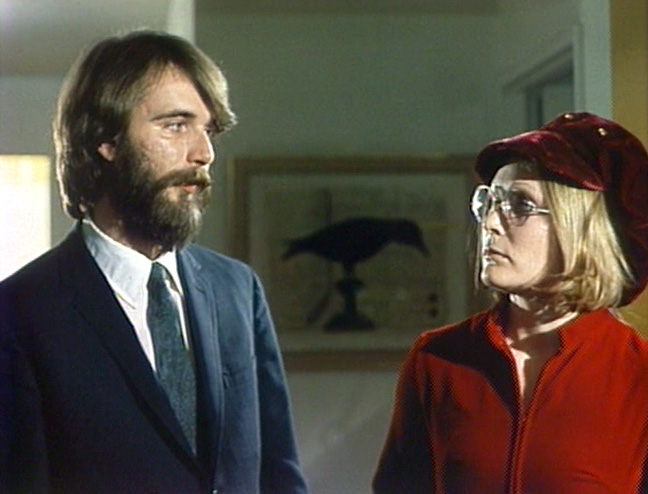 Darby Lloyd Rains, with Jason Russell in Sleepyhead (1973)
Darby Lloyd Rains, with Jason Russell in Sleepyhead (1973)
You did work for Joe again the following year, in a film called Switch (1974) – a non sex role.
I don’t recall that, I’m afraid.
Do remember making Not just Another Woman (1973)?
That was directed by a guy named Toby (Ross). African-American. Some drug money was involved, I think. Actually, a lot of drug money. Not Just Another Woman was the biggest budget film I ever worked on.
How did it turn out?
It was a flop. The money was wasted on car crashes and stunts and locations… Toby treated us like Hollywood stars too, but that’s no substitute for a good story. Or compelling characters.
You did a fair amount of in-person publicity for Not Just Another Woman.
I did, and it was fun. I remember it was released around Valentine’s Day in 1974, and so I made personal appearances at the Lincoln Art Theater and handed out presents relating to the film, like pins and badges.
The Lincoln Art theater… that was a big deal, a prestigious venue.
Those were the days. We really expected to be absorbed into the mainstream at any moment…
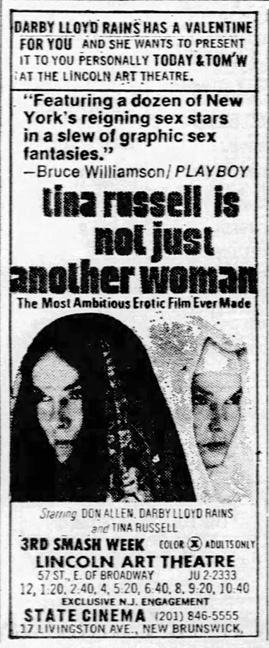 Newspaper promotion for Darby Lloyd Rains’s personal appearance at the Lincoln Art Theater
Newspaper promotion for Darby Lloyd Rains’s personal appearance at the Lincoln Art Theater
*
Coming up, in the concluding part of our interview with Darby Lloyd Rains:
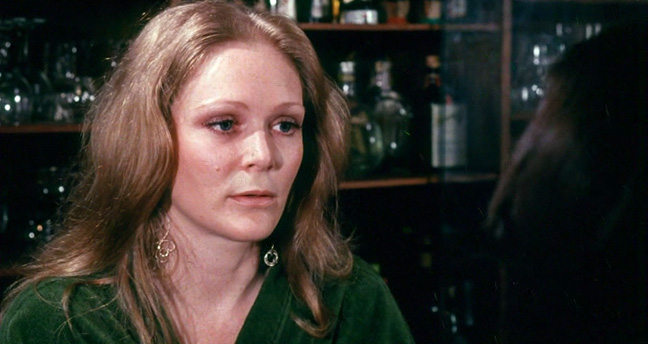
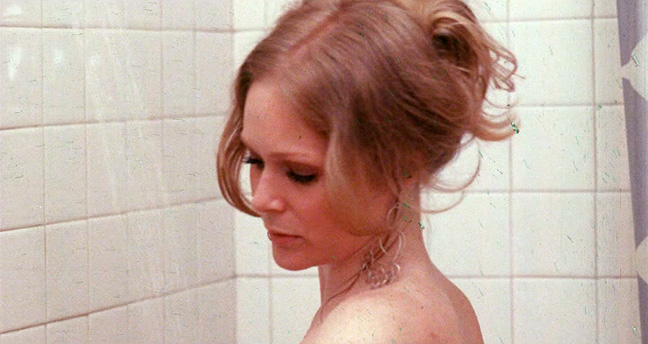
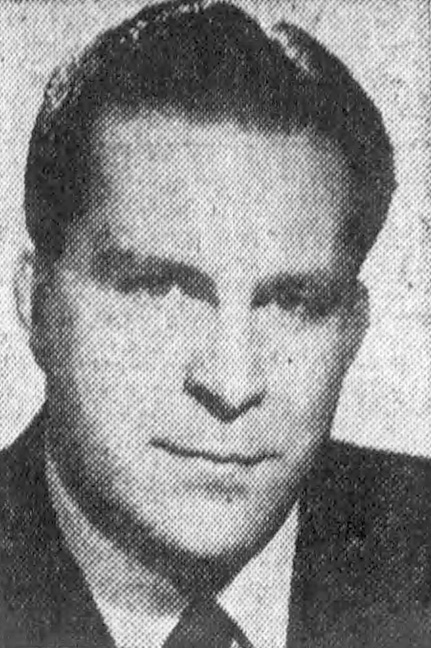
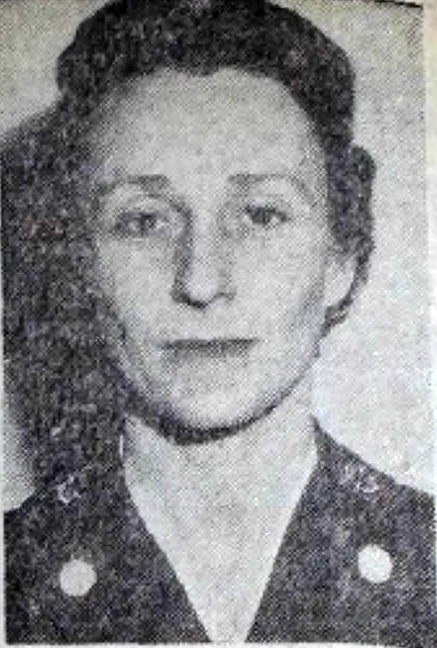
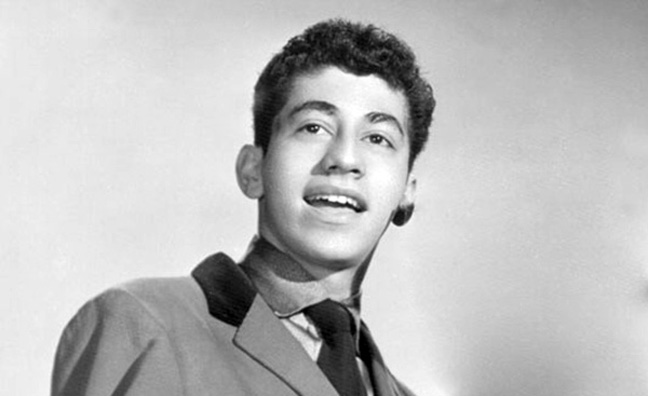
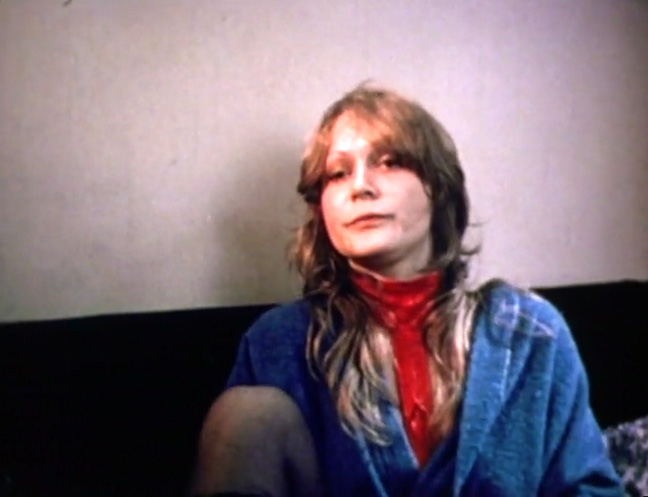
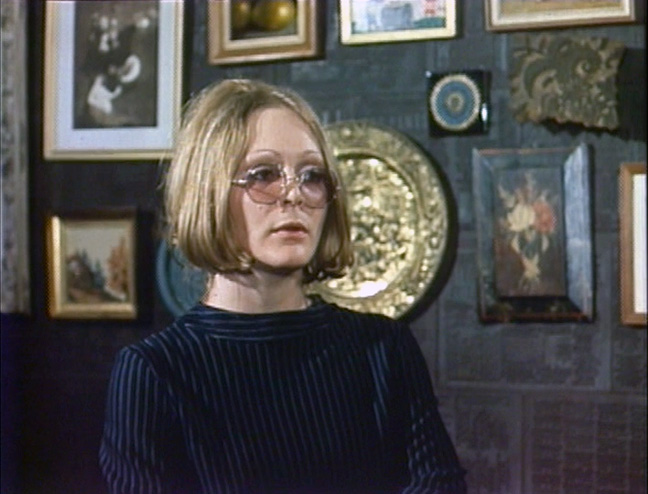
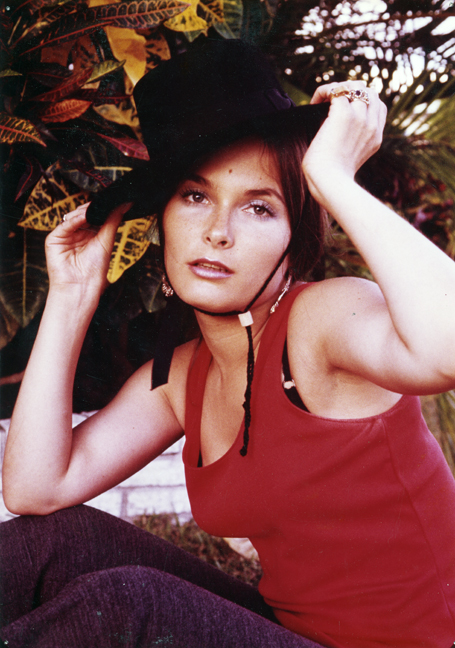
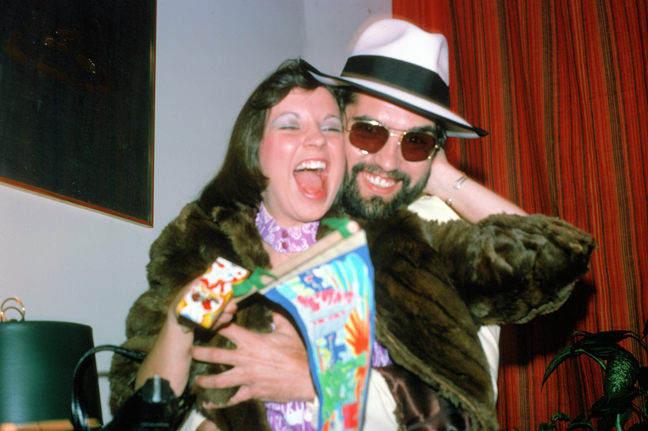
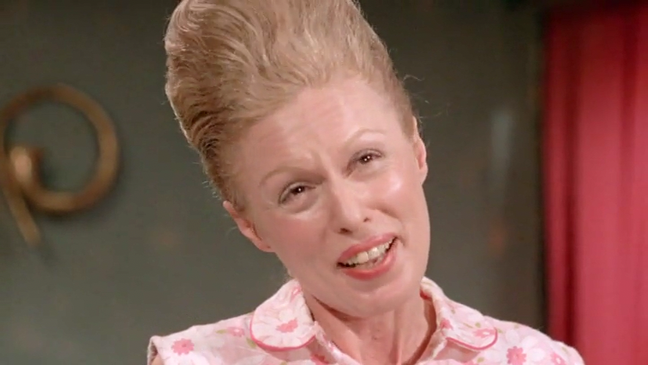

It’s good to have you back Rialto Report. I missed you.
And nobody does it better…
You disappear, but always come back with a bang. She’s on of my favorite golden age actresses, largely because she was so good in Naked Came The Stranger. She was funny, she was sweet and in scene where she dances in the empty pool, very moving.
Looking forward to part two. You gave hints of her post-porn life with the booklet that came with the Distribpix DVD Hoping her life had something of a happy ending post porn.
I have wanted to see this interview for years. Love her ability to just tell the stories of her life, without embellishment or fake memory lapses. She comes across as a straight shooter. Look forward to Part 2.
Thanks Samuel!
Darby is a goddess of the film industry and this interview finally does her justice. Breathtaking that you are still uncovering so many amazing life stories.
Thank you JHM!
I loved Darby more than any other 1970s actor. She exuded such genuine beauty and talent and it is cinema’s loss that she never became one of its biggest mainstream stars.
The Rialto Report is the best.
We appreciate that Giacomo!
The first post of 2025, and it is on a person that I have long been waiting for an interview with. Thank you, Rialto Report!
Naked Came The Stranger, Every Inch A Lady, Virgin and The Lover, Hot Channels… I am always pleased to see Darby Lloyd Rains show up on screen. Those first two films are undoubtedly her best roles. Even in a piece of crap like My Master, My Love, she still makes her scenes fun. Of the early adult actresses, she has become my favorite. She did comedy very well.
I am looking forward to the article(s) to come even though it sounds like it was not all rosy for Darby in her life.
Thank you!
Thanks JC!
Awesome Article Keep Up Good Work
Thank you Jeff!
Naked Came the Stranger has always been one of my favorite films, mainly due to the strength of her performance. I especially liked the scene where she was dressed in a tuxedo and was dancing in the empty swimming pool. Something about that performance was very moving to me.
That is a lovely scene. She looks better in a tuxedo than I likely would.
I was watching some of the films from around then and there was an actress who was in quite a few named Any Mathieu. Petite, with an amazing body and a mischievous twinkle in her eyes, also had an accent that was hard to determine. She seemed out of place, as many did. Might be worth a story, she seemed to be.
Neat interview. One of the few hardcore porns I will watch for the lesbian scenes is Sleepy Head. Tina Russell and Her husband was in that. Jason and that other dude doing each other is gross and 😂 at the same time. Poor Tina.
What interesting lives these people led. This era of adult filmmaking is so much more interesting than the video era. They all kind of found each other at the right place at the right time or maybe wrong place at the wrong time depending on how you look at it.
You guys are SO superb, & the breadth of your knowledge is SO impressive. I use my real name here, & when I say that you guys do PULITZER quality historical work, I have the track record to be able to say that. As I think I’ve said to you in email a few years back, I SO hope you two write a BOOK, a comprehensive history of the industry, & I don’t think there’d be any difficulty in getting a good agent & a top ‘trade’ publisher!